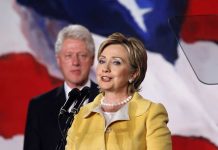
Donald Trump’s invocation of the Roosevelt Corollary to the Monroe Doctrine marks a dramatic shift towards unilateralism in U.S. foreign policy.
Story Snapshot
- Trump’s policy signals a return to interventionist U.S. stances in Latin America.
- The Monroe Doctrine historically opposed European interference in the Americas.
- Roosevelt Corollary justified U.S. intervention in cases of instability.
- Current geopolitical competition involves China and Russia’s influence in the region.
The Historical Framework
The Monroe Doctrine, articulated in 1823, declared the Western Hemisphere off-limits to new European colonization and interference. This set the stage for the U.S. to assert dominance in its backyard, but it was President Theodore Roosevelt’s Corollary in 1904 that extended this doctrine. The Roosevelt Corollary justified U.S. intervention in Latin American countries experiencing “chronic wrongdoing,” effectively positioning the U.S. as the hemisphere’s police force.
Now, Trump is reviving this corollary, citing the need to counter Chinese and Russian activities in Latin America. This move signals a potential shift from multilateral cooperation to unilateral action, reminiscent of early 20th-century U.S. foreign policy. The implications are significant, as they could redefine U.S.-Latin American relations and global geopolitical dynamics.
Geopolitical Motivations
The resurgence of the Roosevelt Corollary is driven by growing concerns over Chinese investments and Russian military alliances in Latin America. These developments have raised alarms in Washington, prompting a need to reassert U.S. influence. Trump and his allies argue that these external powers threaten U.S. security and economic interests in the region, justifying a more assertive stance.
Latin American governments have mixed reactions. Some seek U.S. support to stabilize their nations, while others view American intervention as a threat to their sovereignty. The U.S. aims to protect its interests, but this approach risks igniting diplomatic tensions and anti-American sentiment, reminiscent of past interventions.
Current Developments
In recent years, Trump-aligned policymakers have explicitly referenced the Monroe Doctrine and Roosevelt Corollary to justify increased U.S. involvement in Latin America. The U.S. has ramped up military exercises and diplomatic efforts to counteract Chinese and Russian influence. This renewed focus on the Western Hemisphere aligns with Trump’s “America First” philosophy, which prioritizes national sovereignty and security over multilateralism.
Recent statements from Trump and his supporters have criticized external powers’ involvement, framing it as a direct threat to U.S. interests. This rhetoric suggests a willingness to intervene in Latin American affairs, potentially leading to heightened tensions with both regional governments and global powers.
Implications and Perspectives
The revival of the Roosevelt Corollary could have profound short-term and long-term impacts on U.S. foreign policy and regional stability. In the short term, increased U.S. involvement may lead to heightened tensions with China and Russia, as well as potential diplomatic rifts with Latin American governments opposed to U.S. intervention.
In the long term, this approach risks undermining regional multilateralism and fostering anti-U.S. sentiment. Critics warn that a return to interventionism could repeat historical mistakes and damage America’s standing in the region. Meanwhile, proponents argue that a strong U.S. presence is necessary to counter growing external influences and protect national interests.


















